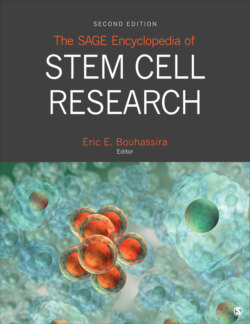Читать книгу The SAGE Encyclopedia of Stem Cell Research - Группа авторов - Страница 109
На сайте Литреса книга снята с продажи.
Stem Cell Australia
ОглавлениеStem Cell Australia was established as a multidisciplinary seven-year effort by the Australian General Research Initiative. It is a stem cell research partnership among the University of Melbourne, Monash University, the University of Queensland, the University of New South Wales, the Walter and Eliza Hall Institute for Medical Research, the Victor Chang Cardiac Research Institute, the Florey Institute of Neuroscience and Mental Health, and the Commonwealth Scientific and Industrial Research Organization (CSIRO). The University of Melbourne hosts the group, and Professor Martin Pera was invited to return to his homeland from the University of Southern California, where he headed the Eli and Edythe Broad Center for Regenerative Medicine and Stem Cell Research, to serve as head of the new organization.
Pera’s expertise is in the fields of biological engineering, nanotechnology, stem cell biology, advanced molecular analysis, and clinical research. His research focuses on examining the mechanisms that control the regulation and differentiation of stem cells, and he is considered a pioneer in the development of human embryonic stem cells and isolating and characterizing pluripotent stem cells from germ cell tumors of testis.
Stem Cell Australia is involved in four key research areas: pluripotency and reprogramming, cardiac regeneration and repair, neural regeneration and repair, and hematopoiesis. Researchers focus on four platform technologies that include embryonic stem cells, adult stem cells, tissue repair, and immune modulation. Support services include Stemformatics, which deals with the merging of stem cell research and bioinformation to furnish gene information and visualization to researchers. Stem Core Labs provides research support on pluripotent stem cell lines. Flow cytometry is offered through Melbourne’s Brain Centre. Each of the eight institutions involved in Stem Cell Australia appoints a member to the Governance Committee, which provides institutional oversight. Scientific oversight is provided by an international team of stem cell experts who serve on the Scientific Advisory Committee, which is chaired by Professor Patrick Tam of Children’s Medical Research Institute in Sydney.
Because Stem Cell Australia was funded for only seven years, government funding ceased in 2011. At that time, the National Stem Cell Foundation of Australia took on the responsibility of raising funds to continue stem cell research. The foundation is also engaged in educating the Australian public about stem cell research. Each year, the foundation awards Metcalf Prizes to two stem cell researchers who have completed their doctorates or medical degrees in the past five to 10 years. The awards include a $50,000 monetary acknowledgment of excellence in research.
